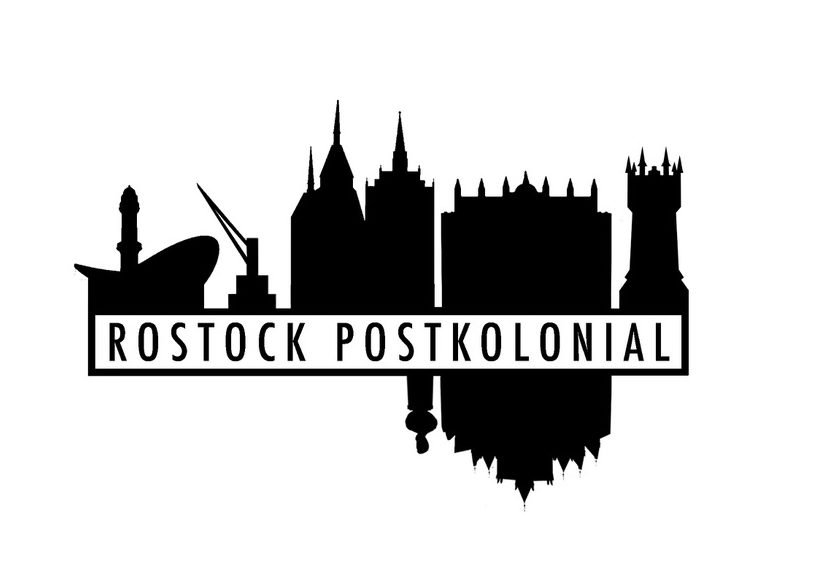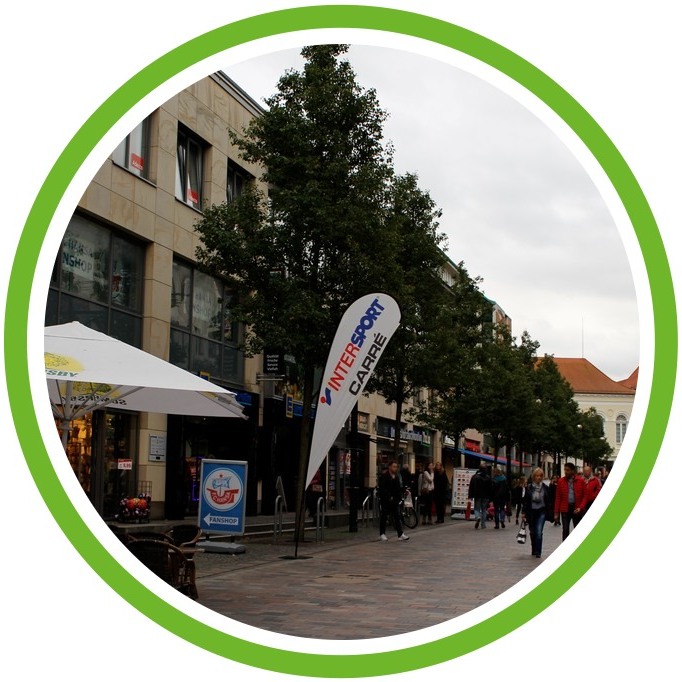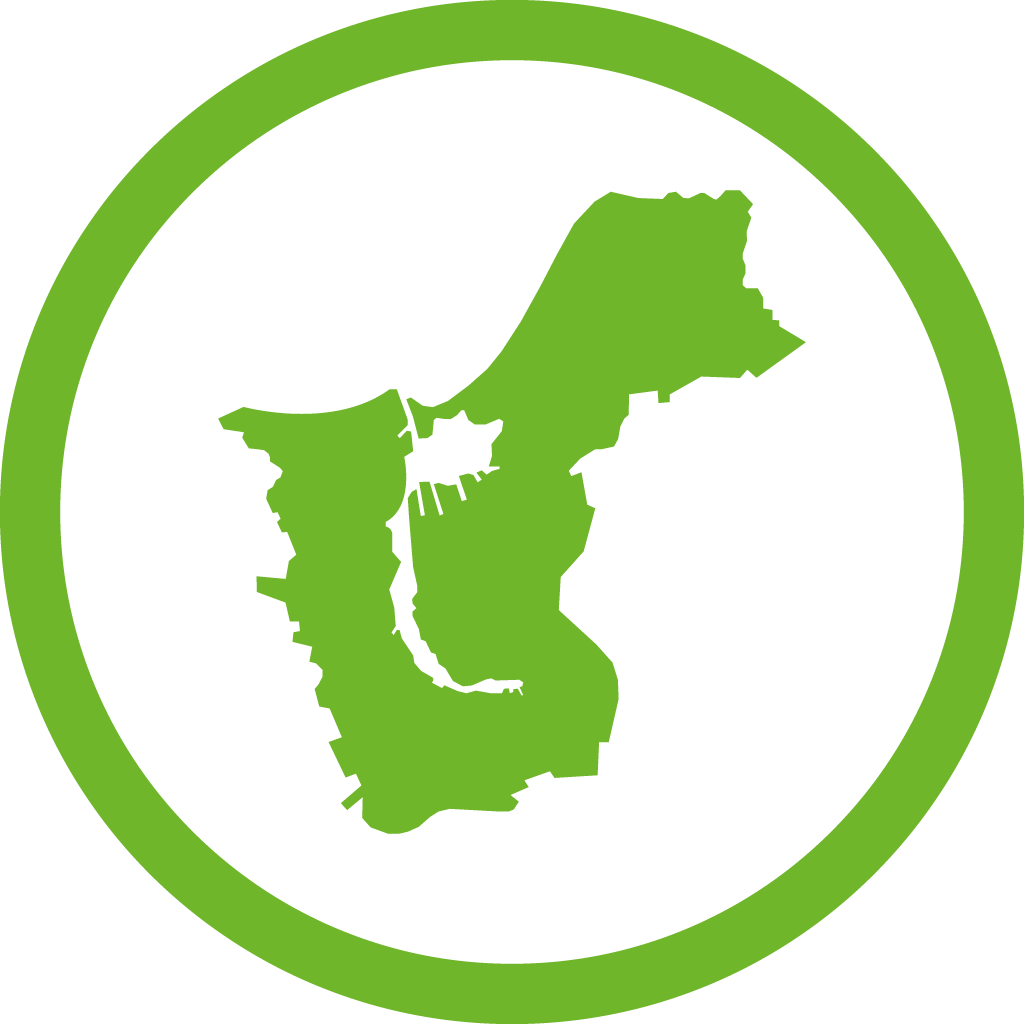Not in the mood for reading?
You can listen comfortably to all the information here and while exploring the region.
Colonial present
Do you know what the abbreviation EDEKA stands for?
EDEKA stands for “Einkaufsgenossenschaft der Kolonialwarenhändler” (“purchasing cooperative of colonial grocers”) and bears the colonial history in its name. Not only does the name show the heritage of the chain, but you can find numerous products on the shelves with a colonial reference. Unfortunately you cannot find a critical reconditioning of their own particular history or of the offered products. There has been no response to our demand as of yet. It seems that they are only interested in their (personal) profits, as it was in the colonial period, where they exploited human beings.
Let us look at three products which show a colonial reference:
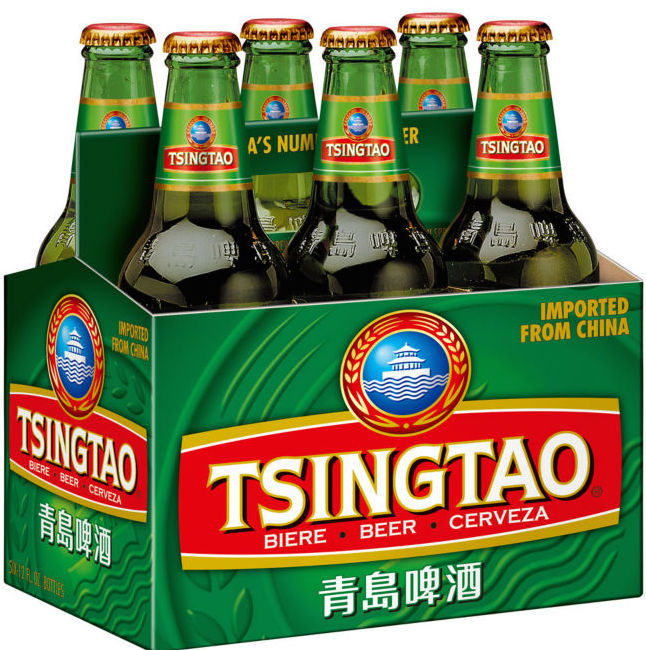
Tsingtao Beer
The famous Tsingtao beer, which is the sixth largest brewery in the world, originated in a Chinese bay called Qingdao. This region was annexed by the German Emperor Wilhelm II. in 1898 to expand the German influence into the east. Efforts to install a military base in the East Asian Region by Prussia were already known for the year 1859. The idea was to build military support for German merchants. Buildings like the brewery, the train station, a protestant church and the residence of the governor exemplify the presence until today. Qingdao was going to be an important trading base in China and until the year 1914 was the capital of the German protection area Kiautschou under the German reign. The brewery was founded in 1903 as the Germania-Brauerei (“Germania-Brewery”).

AXE AFRICA (deodorant or shampoo)
How is it possible that a shampoo can have a colonial reference? By smelling of Africa. It is written like this on the package. “The primal and venturous scent of AXE Africa brings back your wild instincts and prepares you for your next exotic adventure”. Or even the product description when someone wants to order AXE Africa via internet: “This classic carries you off with its sensual and exotic scent into a world full of secrets. (…) It is the scent for explorers who are ready for an adventure.” We can see the reproduction of stereotypes; whilst Africa is made up of 55 different countries, it is reduced to a single exotic secret. Wild instincts are mentioned as if in Africa there are only naked and wild people living only in the jungle and this on the second largest continent in the world. What a representation! Metropolises like Casablanca, Dakar, Cairo, Kapstadt, Lagos or Windhoek are rarely images of Africa.
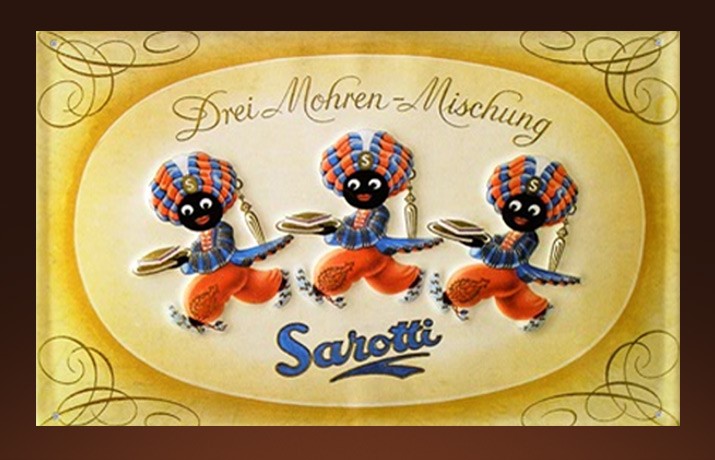
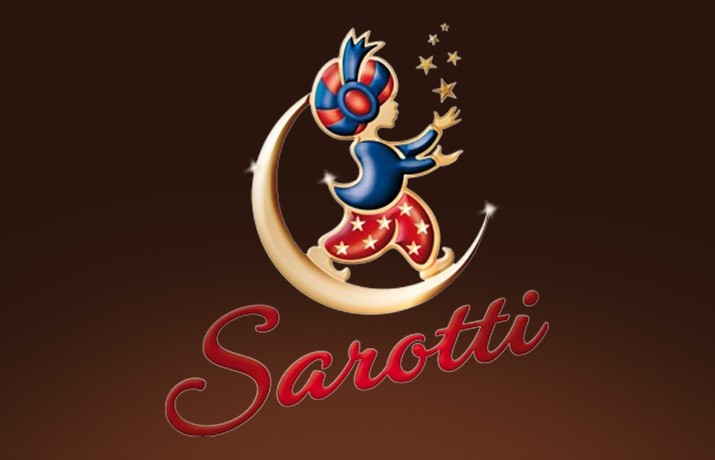
Sarotti chocolate
Cocoa beans, tea, coffee and sugar are classical products from the colonial period. They were grown in the global south for bringing them to the global north for further processing and consumption. Although the chocolate company Sarotti changed their logo, it is nevertheless an example of colonial heritage—a black person with stereotypical thick red lips and big wide eyes, who is serving chocolate in baggy trousers and turban.
„Die den Zeitgeist widerspiegelnden Wandlungen von der schwarzen Diener*innenfigur zum modernen Zauberer ist jedenfalls reklametechnisch raffiniert gelöst worden; auf diese Weise wird wohl die Figur für viele Konsument*innen bei ihren eiligen Einkäufen weiterhin der „Mohr“ bleiben, auch wenn seine Haut nunmehr gülden schimmert.“, heisst es in einem TAZ-Artikel.” (https://taz.de/!541341/ , letzter Zugriff am 7.10.2020)
“The transformation from a black servant to a modern wizard as advertisement is a clever solution, which reflects the zeitgeist of today. Nevertheless it is going to be the case that the consumers will still think of the “black moor” when they buy Sarotti, even if the skin color of the figurine is shimmering golden”, written by the German newspaper TAZ.
From single products to the global trade
Not only in single products is the heritage of the colonialism to be seen. Colonial balances of power still exist in global trade structures and economic structures. Many people living in the global south have to work for very small wages. They are dependent, they are exploited and they are risking their health. Whereas in the global north, value and profit are created and the product will be enjoyed by the consumers.
A colonial-critical view
Even if the balances of power have strong roots and still have an effect on the globe, it is possible to change little things. We should develop sensible and lasting consumption which can influence the production conditions. For example, fair trade products improve the wages and raise safety standards for the producers in the global south. There are local alternatives like solidary agriculture, which exist in Rostock and the periphery like Foodcorp, Solawi, Ackergruppe, Backstube,…). The transport routes have been reduced and it is possible to bear more reference to local vegetables and other products. You can find a “Fairteiler” (“distributor”) in the Peter-Weiss-Haus, where sorted out food was rescued from the garbage. If you can’t give up coffee or similar products, it is possible to support local collectives like Café Libertad.
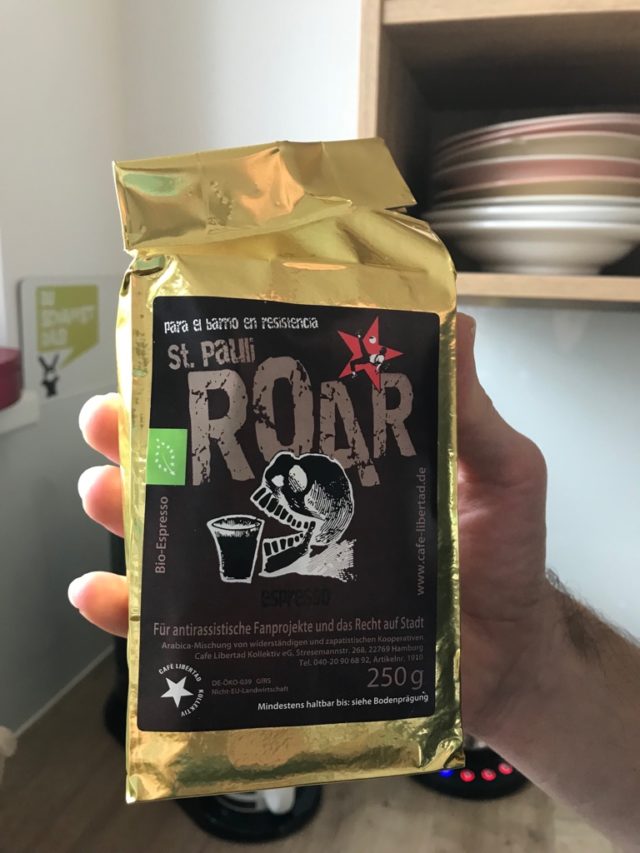
Sources and for reading
- http://www.cafe-libertad.de/shop/; last accessed 4.12.2020.
- https://de.wikipedia.org/wiki/Qingdao; last accessed 4.12.2020.
- https://de.wikipedia.org/wiki/Tsingtao_(Brauerei); last accessed 4.12.2020.
